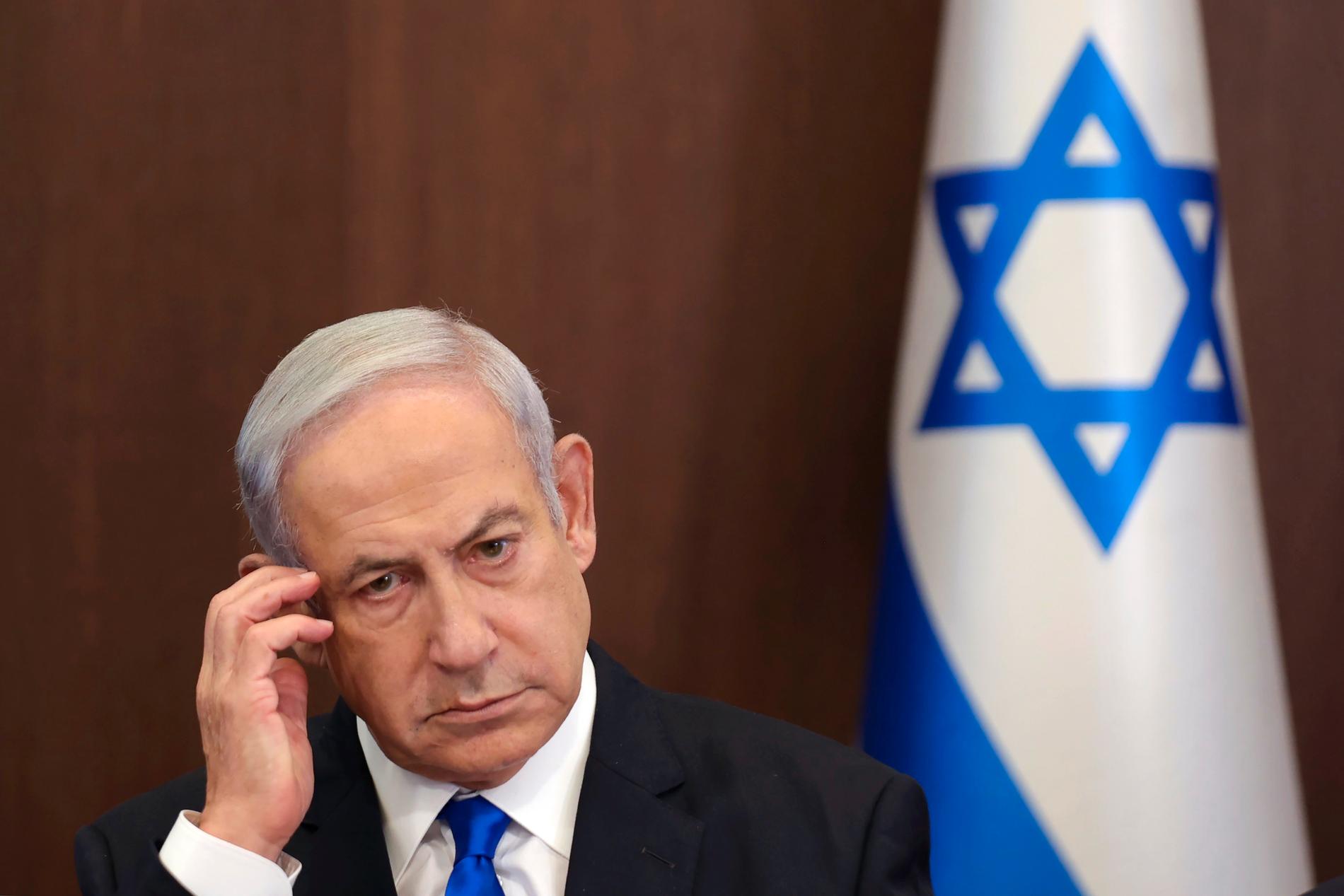
Columnists
The Israel/Palestine conflict
Hard-pressed Netanyahu makes a U-turn
Wolfgang Hansson
This is a commenting text. Analysis and positions are the writer's.
Published 17.48

Israeli Prime Minister Benjamin Netanyahu. Photo: Abir Sultan / AP
Israel's prime minister is under heavy pressure to start negotiations on a Palestinian state.
Then Benjamin Netanyahu instead presents a proposal for a longer ceasefire in exchange for the release of the hostages.
All to shift the focus but without ending the war.
The war in Gaza is in its fourth month. Throughout, Netanyahu has stubbornly rejected any call for a ceasefire on the grounds that it would strengthen Hamas and undermine Israel's "total victory".
The temporary truce that prevailed for a week at the end of November he called a ceasefire.
So when Israel now presents a proposal for a longer truce, the reversal is the result of incredibly hard pressure both from the US, Europe and domestic opinion in Israel.
The war has in many ways come to a standstill. Despite enormous military superiority, Israel has not managed to defeat Hamas.
Instead, Israel has been severely criticized for not taking sufficient account of the civilian population in Gaza, who have nowhere to flee, in their warfare. The borders in all directions are closed.
Of the more than 25,000 Palestinians that the Hamas-controlled health authority in Gaza says have been killed so far, more than 10,000 are children.
Israel has knocked out a large part of the hospitals in Gaza with the justification that they were used by Hamas to carry out attacks against Israel.
Famine spreads in the tent camps. Gaza is simply an ongoing humanitarian disaster on a grand scale.
On top of this, the US, the EU and many others are pushing for a plan for a solution to the Israel-Palestine conflict once the war is over.
Everyone except Israel seems to agree that the only way to create lasting peace is to create a Palestinian state out of the areas Israel currently occupies, the West Bank and Gaza.
President Biden spoke by phone with Netanyahu on Friday and pushed for negotiations on a Palestinian state. Answering questions from journalists after the call, he claimed that Netanyahu is not necessarily opposed to such a solution.
Whereupon Netanyahu quickly came out and declared that a Palestinian state would pose an existential threat to Israel. Shortly after that, reports leaked that Israel had proposed a two-month ceasefire in exchange for the release of the 136 hostages still held by Hamas, 28 of whom are dead.
Netanyahu simply wants to shift the focus from the demands for a Palestinian state and a final solution to the Palestine conflict to the ongoing war. Even if it means Israel has to agree to a ceasefire.
There are also domestic political reasons for this.
The relatives of the hostages have stepped up their campaign to force a new ceasefire. Yesterday, a group stormed the Knesset, Israel's parliament, demanding that the government shift its focus from defeating Hamas to freeing the hostages.
In addition, Israel suffers heavy losses in the war. Yesterday, some 20 Israeli soldiers were killed in what appears to have been an ambush by Hamas.
Netanyahu is under pressure from all sides. At the same time, he wants to keep the war going. He knows that the moment the war ends, the demands for his resignation will reach hurricane force.
Therefore, one of the conditions of the Israeli proposal is that the long truce does not mean the end of the war, even if Israel promises to reduce the intensity of the fighting and withdraw tanks and soldiers from major population centers in Gaza. It would allow, for example, the residents of northern Gaza to return to their homes. Or what remains of them.
Hamas has not yet responded to Israel's proposal. In the past, it has been said that it is only prepared to release the hostages if Israel ends the war. Hamas is hard pressed militarily, however, and a two-month ceasefire is long enough to give the terror-labeled group a much-needed reprieve while easing the suffering of Palestinians in Gaza, many of whom are critical of Hamas in the aftermath of its October 7 terror attack on Israel last year.
Israel therefore believes that Hamas, via the mediators Egypt and Qatar, may consider agreeing to a longer ceasefire and the release of hostages against Palestinian prisoners held by Israel.
Netanyahu's plan is that he will then be able to resume the war against Hamas and thereby postpone the demands for a Palestinian state to the future.
Inga kommentarer:
Skicka en kommentar